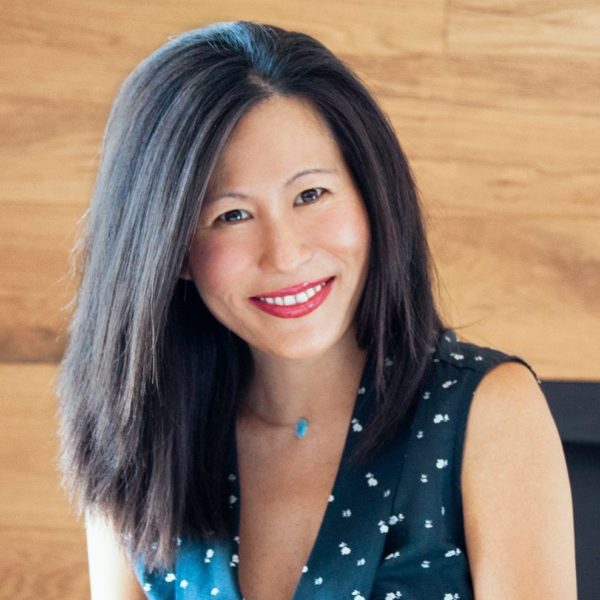
Image by Hernan Sanchez/Unsplash, Public Domain Dedication (CC0).
Counterfeit Happiness and the American Consumerist Tradition
On the morning of July 2, 1961, Ernest Hemingway was famously found dead of a shotgun wound to the head at his home. At first, his fourth wife, Mary, said that it was an accident while cleaning his weapon.
The author was in near perfect health, according to his physician from Mayo Clinic, but Hemingway had lost a lot of weight and had been acting depressed. His friend of 20 years, Chuck Atkinson, had spent time with him the day before, commenting, “He [Hemingway] seemed to be in good spirits. We didn’t talk about anything in particular. I think he spent last night at home.” There was no note to explain, or to say goodbye.
I have been reading Hemingway’s beautiful A Farewell To Arms this summer, and thinking a lot about how we structure our lives in a dizzying myriad of incongruous ways. His words have been an unexpected gift. As a teacher of money, a subject of such great controversy and political divisiveness, I appreciated his depiction of “breaking” in a financial context:
“If people bring so much courage to this world, the world has to kill them to break them, so of course it kills them. The world breaks every one and afterward many are strong at the broken places. But those that will not break, it kills. It kills the very good and the very gentle and the very brave impartially. If you are none of these you can be sure it will kill you too but there will be no special hurry.”
In my practice, I’ve met people who were financially breaking, and couldn’t reconcile the goodness of their hearts with the impossibility of their financial situations. Everyone was working hard and feeling left behind. There was no faith of anything good beyond the world breaking them.
During these painful conversations, I would be reminded of my childhood as the daughter of Asian immigrants who began their lives in this country at the poverty line. My sister and I were taught the importance of creating a life to make and have money with relentless rigor, to establish a traditionally reputable career. Our parents wanted us to have everything they thought they could never have: financial stability and social acceptance. We lived like hostages to money and everything they believed it could buy.
We bought houses one at a time and renovated them to be sold for profit as soon as possible. Because we didn’t have enough money to rent and live somewhere else during construction, my sister and I learned to live half indoors, half outdoors until we left for college. After a night of cold rain, I would peel the soaked sheets off my body and wade to the breakfast table past wood splinters and debris floating around my ankles. I had to remember to leave my large maroon backpack on the chair the evening before to avoid my books getting soaked from the setting water on the floor.
A recession was a welcome relief. A halt in the economy meant that we would have difficulty selling the home, and my sister and I could live in a completed house for just a little while longer.
My mother and father thought they could never stop. Each house became progressively bigger, the neighborhoods more exclusive, our cars more European. All the while, my sister and I suffered quietly with the ironies of our daily life. There was no money for vacations, pets, or charity. My parents kept running as though we were one dollar away from being left behind forever.
I believe that’s the way most of us feel in this country, a nation built on the tenets of capitalism. We don’t want to miss out on the American dream, of “having it all.” We fear breaking financially. We let go of our own dreams and become busy buying into other people’s dreams for the sake of status and false security.
When I speak with people intimately about their issues with money, the first thing we do is gently pierce their human armor, to lay down their need to seem “fine” or that they’re holding it all together as is. In that space of intense vulnerability, it becomes possible to hear their inner voice. For some people, this voice of purpose that knows who they are and what they really want from their lives has become so buried, both emotionally and physically, it’s a fight to learn to trust it at all. The breaking itself takes time.
Yet, after countless conversations, I’ve found that it’s only after this “breaking” occurs that the work of rebuilding a better life can begin. Before this point, all teachings of personal finance are perceived as acts of self-deprivation or punishment to the student. After the process of breaking, financial strategies such as shedding unneeded things and saving for a rainy day feel like what they were meant to be in accordance to the laws of nature: acts of great self-empowerment, self-love, and freedom.
Hemingway once called his affluent childhood neighborhood of Oak Park, Illinois a place of “wide lawns and narrow minds.” I grew up in such a place.
I had completely lost myself after 42 years of buying into the American consumerist tradition. I felt that no one could hear me. When I finally sold my piles of unneeded things, including my big white house on a hill, to pursue my own dreams I saw that there may be great hope for us all after the breaking.
What would happen if we let ourselves break with less fear of what may happen next, and moved on to the business of building narrower lawns and wider minds? Less poverty? More room for compassion? Perhaps some space for contributing more and consuming less might emerge. We could find strength after letting go of traditions that didn’t serve us.
Hemingway describes the deaths we must face as merely doors:
“‘The coward dies a thousand deaths, the brave but one’…. (The man who first said that) was probably a coward…. He knew a great deal about cowards but nothing about the brave. The brave dies perhaps two thousand deaths if he’s intelligent. He simply doesn’t mention them.”


Share your reflection